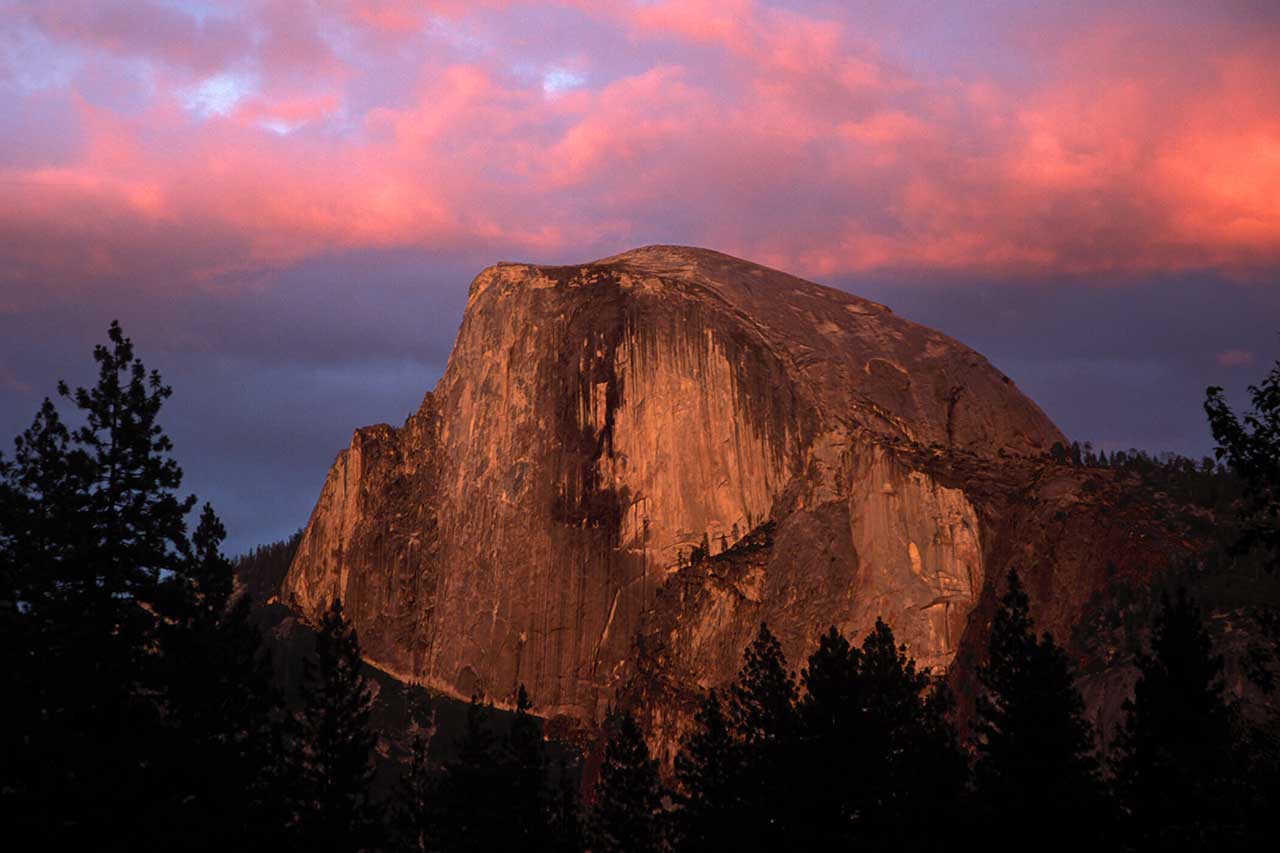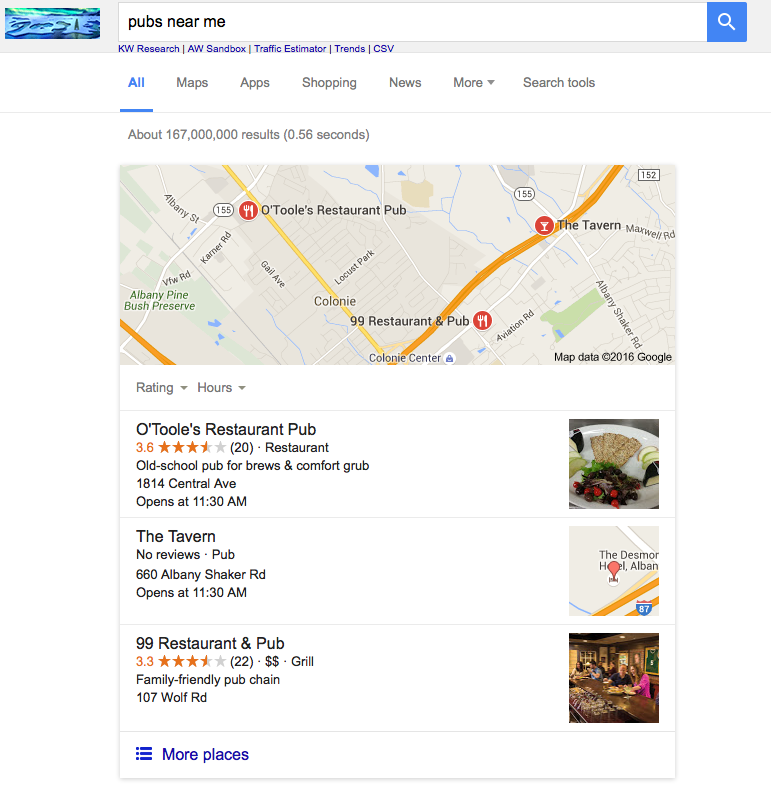
Businesses normally have a lot of questions about SEO, but, one branch that sometimes makes them scratch their heads is the difference between local SEO and traditional SEO. “What is local SEO and how is it different from normal SEO?” is a much more common question posed to digital marketers than people think. This among other frequently asked questions are what I’m going to answer in this article, but first, there’s something we should explain.
The Local Search Results aka “The 3 Pack”
Over the last several years, Google has refined and re-refined their search results pages to give local businesses prime SERP real estate on their first page. The reasoning behind this is simple, Google users want to see what local businesses there are for certain keyword phrases.
For example, let’s say, I’m looking for a good place to have a meal and a drink at the end of the day, A search for “pubs near me” will pull up pubs nearby who are (in this case) within driving distance along with some useful information such as rating, phone number, address, and hours.
Not only is this good for finding a good pub for a pint and burger, it’s also many people’s preferred method for finding anything from daycares to dentists. According to Ed Parsons over at Google about 1 in 3 searches are about locations. Which means that you’ve probably done this yourself so you’re probably familiar with the user side of local SEO. Now that that’s out of the way, let’s dive in and answer a few of these FAQs shall we?
What is local SEO and how is it different from regular SEO?
As you probably know, SEO is the use of different tactics to make your website rank high on Google, with the first page of search results being the ultimate goal. With local SEO, instead of focusing exclusively on your website, you’re also going to focus on different outlets that list your business information such as Google’s My Business profile page.
For example, try searching for “barbers near me” and you’ll see what I’m talking about. You should see a map in the upper right corner, different barbers names, addresses, and phone numbers along with reviews right at the top of the first page of Google. All of this information is coming from a business’ Google My Business page.
So, the key difference between local SEO and regular SEO is that you need to optimize both your website and your Google My Business profile page to compete for local SEO.
How Do You Get Google To Display Business Results?
One of the biggest points of contention with local SEO is that Google doesn’t always show the “3 pack” in search results. So how do you force Google to show the local business pack instead of normal search results? The long and short of it is, you can’t.
If Google isn’t showing a listing with a map and business profiles, then there is no way to force Google to show your business page. Instead, you’ll just have to optimize your content using traditional SEO tactics.
What Types of Businesses Should Pursue Local SEO?
Google has a full set of guidelines for listing your business in Google. Obviously, if you’re a 100% online presence with no physical location to speak of, then local SEO isn’t for you. The basic rule of thumb is that local SEO is a good marketing avenue for any business that interacts in-person with it’s prospective customers. If you never meet in-person, then it probably isn’t a good fit for your business.
How Can I Get My Business To Rank In Other Cities?
Location is a big factor when it comes to the ranking algorithm for local SEO. Where this is concerned you have to think from the perspective of the searcher. If I’m searching for a restaurant in Albany, it doesn’t help me to see results for places that are in Rotterdam. Google takes this into account which is why the location of the person searching versus the actual location of the business is a big factor in local SEO.
It helps to think of it like a double-edged sword; you’ll have an advantage getting into that local 3-pack the closer your prospective customer is to your business, however, the further away they’re searching, the less likely they’ll see your business. It’s not impossible to rank in other cities than the one you’re located in, just know that it’s going to be an uphill battle to beat out businesses that are closer to the searcher.
Curious about how Mountain Media can help you with your local and traditional SEO? Feel free to shoot us an email and one of our SEO specialists will be glad to consult with you to see how Mountain Media can help bring your business to new heights.



